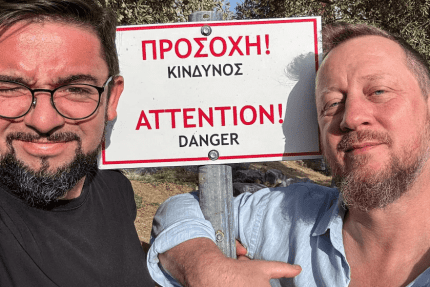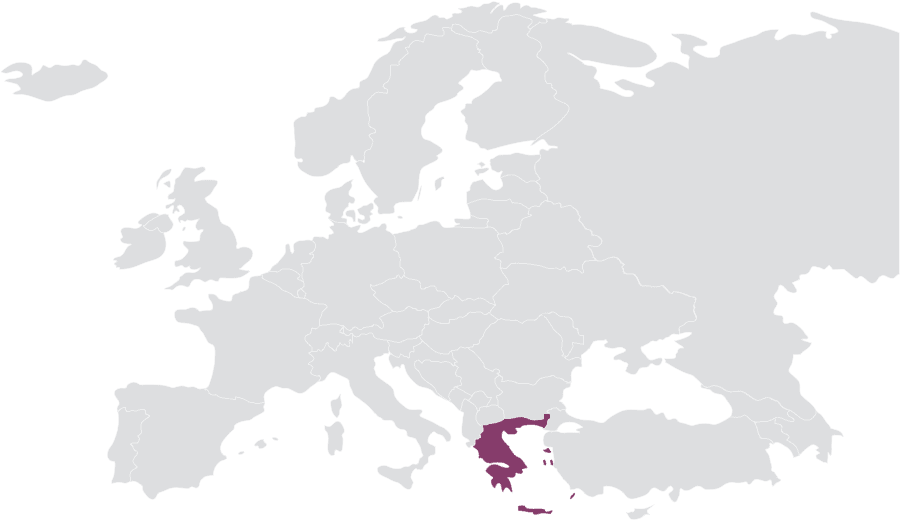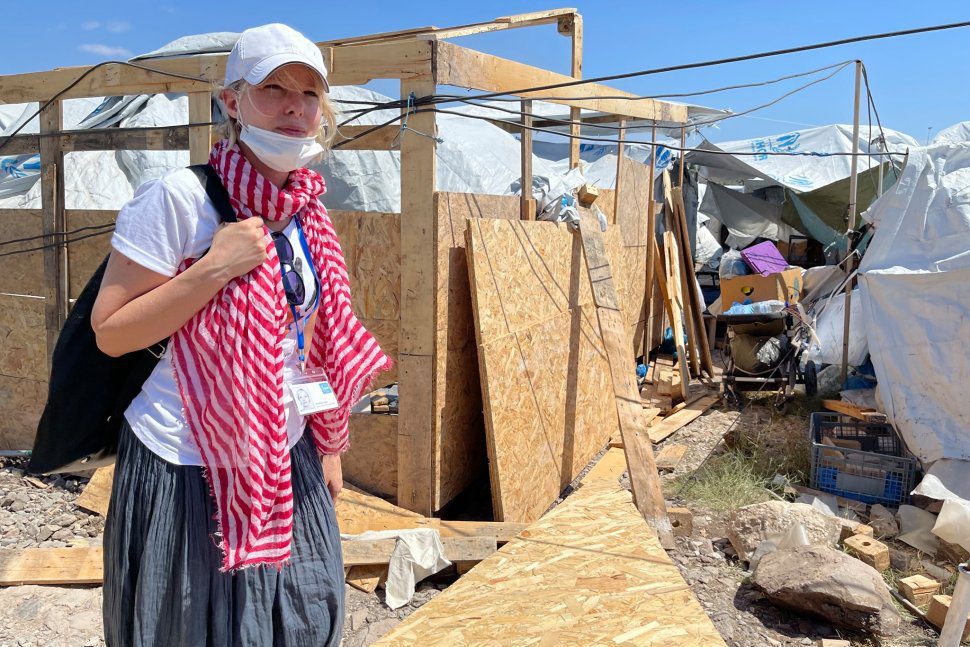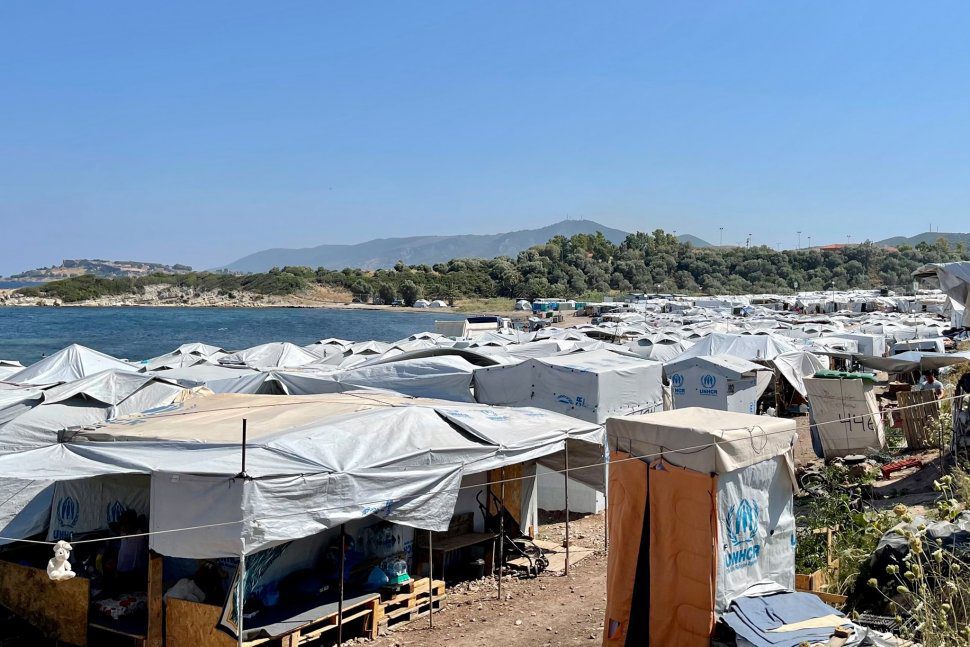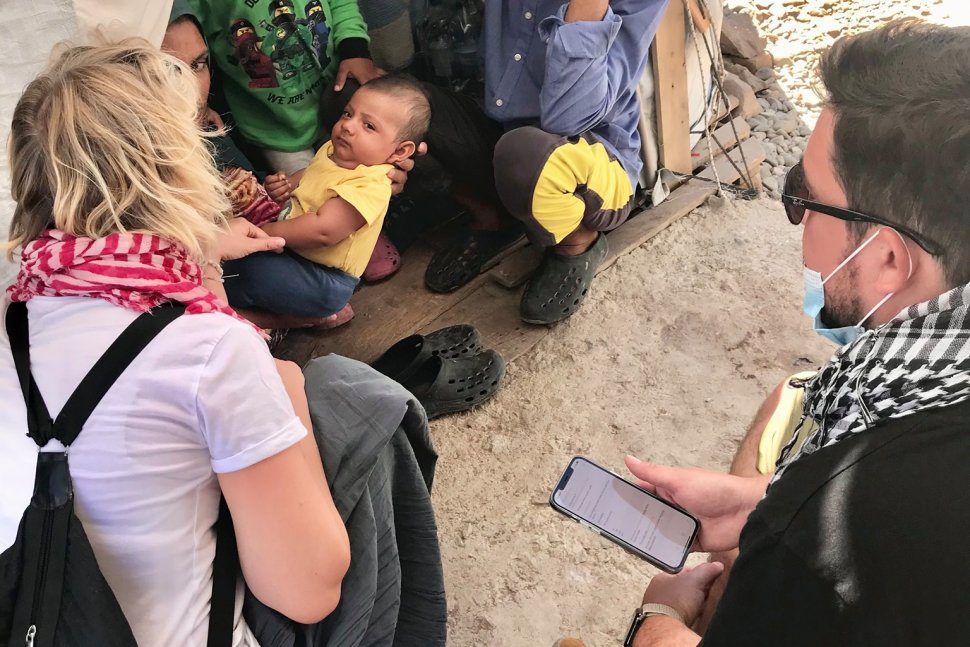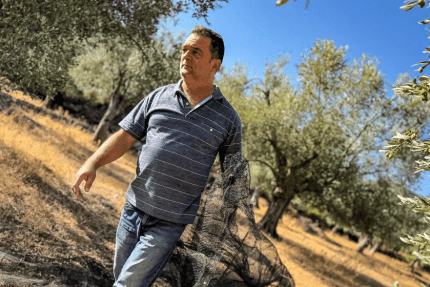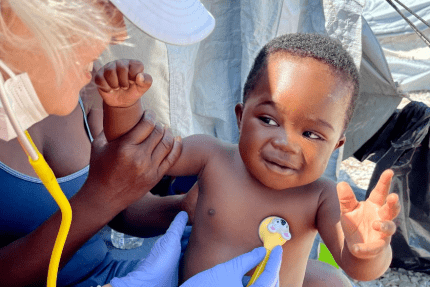“In Nigeria I was a metalworker, here I am nobody,” says John, a resident of one of the tents in the camp on the Greek island of Lesbos.
“I have travelled all over the world with my artworks, organizing exhibitions in the United States and in many European capitals. I also visited Krakow once. To where would I like to return? Most of all to Nigeria, to my home, but it is impossible,” he explains, completely resigned. He invites us to sit in front of the tent where he lives with his wife and a-few-month-old baby. When Ola, the doctor joining us on our mission in the camp, examines the child, John tries to host us by organising a few plastic chairs and a stool. He hurriedly tidies up a pile of various items, some of them broken and useless at first glance, but that’s all they have. They have been collecting them for the past months. “During the winter everything was lacking here. With difficulty we managed to find some wooden pallets and made them into a floor in the tent so that we would not have to sleep in the huge puddle which formed in the middle of the tent every time it rained,” he explains, trying to clarify at the same time why there is a pile of all sorts of objects in front of his tent: these might also be of use in a difficult moment.
John’s baby son has been waking up crying at night for several days. His mother suspects that something is wrong with the child’s tummy. The parents are grateful that we want to help and that we found them ourselves. John tells us how they ended up here, how by fleeing they saved their lives and at the same time lost everything else that was important to them.
“My job gave me many opportunities. I lost everything when my government forced me to flee. I do not blame Europe for receiving me very differently from the way I used to be welcomed. I blame my country’s authorities because they took away my dignity, my opportunities and my future.”
Last year alone, nearly 170 000 Nigerians and almost 10 million people from other countries shared John’s fate, having been forced to flee their homes because of conflict and violence. They used to be teachers, students, farmers, pharmacists, mechanics, artists, scientists, hairdressers etc. Today they are simply referred to as refugees. “This is very hurtful to us,” says John.
Together with you we are reaching out to them. Our goal is to restore their dignity. Visit GoodWorks 24/7 and donate at least a hot meal or health care package to people who have lost everything in life.
